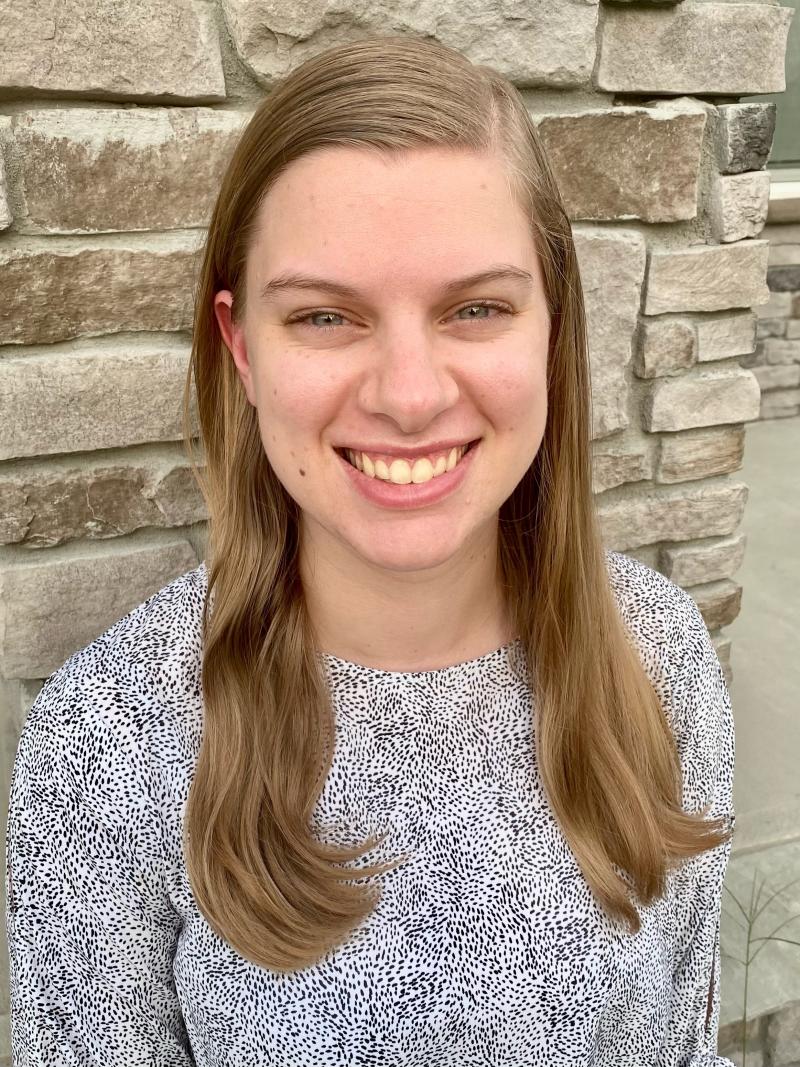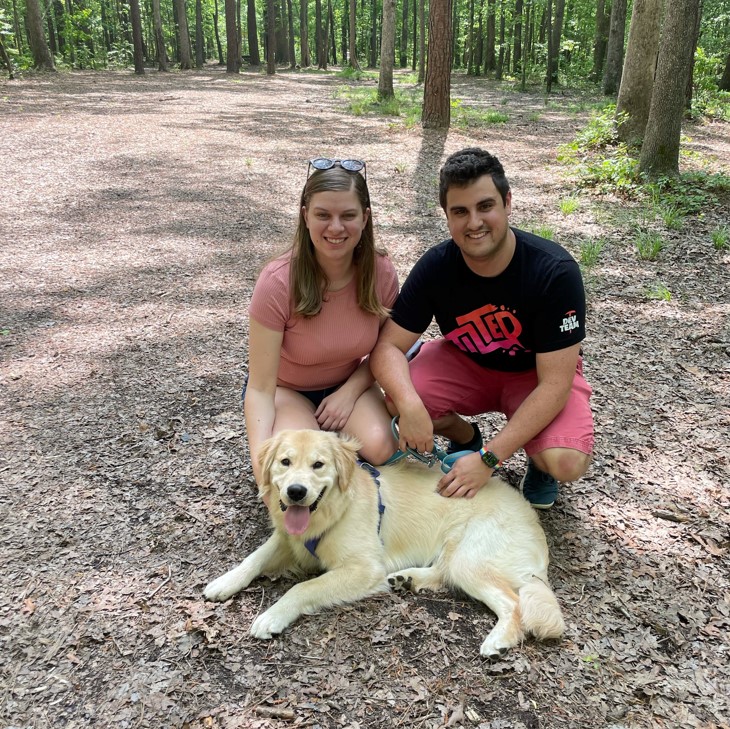
Even the most non-invasive surgeries pose potential strains and challenges for the central nervous system, making careful, real-time monitoring of the brain and spinal cord a requirement for a safe procedure. As one of Duke’s intraoperative neuromonitoring technologists, Holly Johnson, MS, CNIM, performs this monitoring for patients undergoing surgeries at Duke University Hospital. In this week’s Spotlight interview, Johnson talks to us about her work preparing and monitoring patients during surgery. She also talks about her involvement in research to improve this monitoring, her plans for a career as a physician assistant, and enjoying reading, cross stitch, and video games when she’s not at work.
What are your current responsibilities in the Neurology Department? What does a typical workday look like for you?
As an intraoperative neuromonitoring technologist, I set up and run tests like evoked potentials, EMG, and EEG during surgeries to help inform the surgery team about the integrity of the nervous system. A typical day consists of getting to the hospital before the surgery is scheduled to start and preparing my computer and electrodes, setting up the patients once they are asleep, and running the tests required for surgery. Once the surgery is over, I break down and clean up, and then check in on my other team members to give breaks.
What led you to pursue a career in physiology? How did you decide to focus on neurophysiology in particular?
My eventual career plan is to be a physician assistant, and I've just taken a few detours along the way. After I graduated with my master's degree, I was looking for jobs in nearby hospitals and I stumbled upon the neurophysiologic intraoperative monitoring job on Duke's website. I've had an interest in both neuro and being in the OR for a while, and I thought it seemed like an interesting combination of the two.
You recently presented a poster at the annual meeting of the Neurodiagnostics Society (ASET) this August. What was the focus of the poster and how will that information help us better understand or treat people?
Duke presented both a poster and a presentation at the annual ASET meeting this year, and I was able to participate in both projects. Each one focuses on different ways we can expand intraoperative monitoring in specific types of surgeries, which allows us to give more information to surgeons and avoid negative outcomes for patients. The poster we made shows how we can utilize monitoring during awake spine surgeries.
In the past, we were not sure what we would be able to monitor, but our case study showed that monitoring should be similar to that in asleep patients. Our presentation was on blink reflex monitoring in skull base surgeries, and how other technologists can use it during their surgeries to help provide more accurate and real time monitoring of the facial nerve, to help the surgeon avoid causing facial paralysis.
You also have experience as an emergency medical technician. How does that experience inform or complement your current work?
I was an EMT for about a year for Sandbridge Volunteer Rescue Squad in Virginia Beach. It was an incredible experience that taught me how to succeed and thrive in a chaotic and unpredictable environment. Although working in the operating room is certainly not the same as working out in the field, I learned to keep my cool and become comfortable with being uncomfortable, which helps me every day in the OR.
What do you enjoy most about your work?
Every single day is different for me. I work across all three Duke Health System ORs, the Ambulatory Surgical Center, and in our Neurodiagnostics outpatient clinic. I work with many different surgeons in neurosurgery, orthopedic surgery, cardiothoracic surgery, vascular surgery, and more. Even after being at Duke for 2.5 years, I still see new things all the time.
What’s the hardest part of your job?
The schedule can be very challenging. My team doesn't work in shifts, we come in when surgery starts and leave when it ends. It can lead to some very long days and requires a lot of flexibility. There are pros to not working in shifts though - there are some days that are very short and I get to have nearly the whole day to myself.
What other passions or hobbies do you have outside of the Department?
I love to spend time with my dog, read, play video games, and cross stitch.
